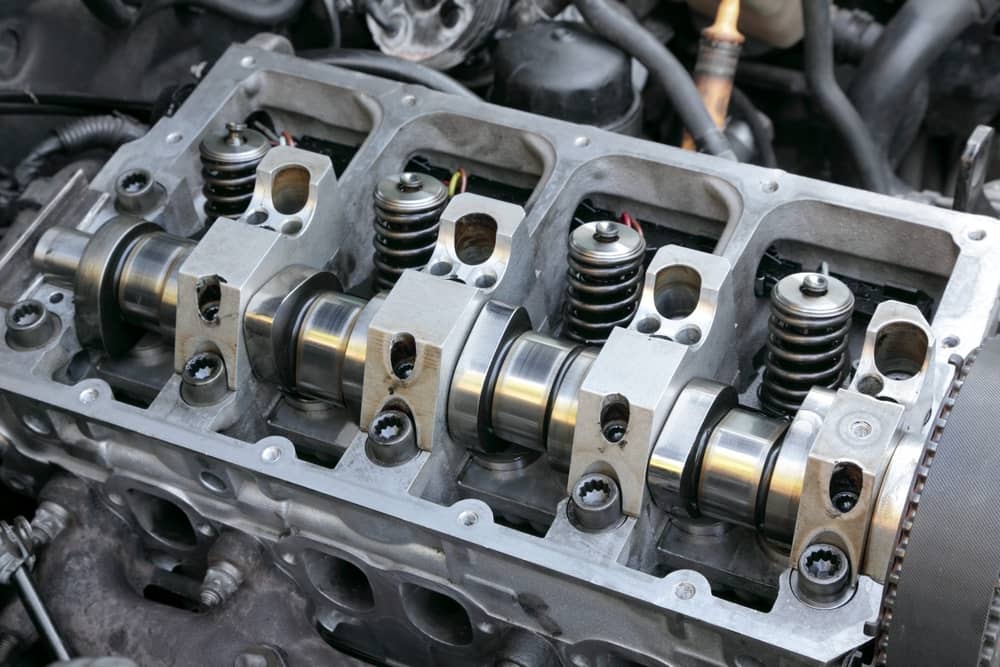If you’re a Dodge Charger owner, you may have noticed a ticking noise coming from your engine. This can be a cause for concern, as it may indicate that something is wrong with your car. There are several possible reasons why your Dodge Charger is making a ticking noise, and we’ll explore some of them here.
One possibility is that the ticking noise is coming from the valves in your engine. If the valves are not closing properly, they can cause a ticking sound. Another possibility is that the connecting rods in your engine are loose and knocking against each other.
This can also cause a ticking noise.
If you own a Dodge Charger, you may have noticed a ticking noise coming from the engine. This noise is caused by the engine’s valves and is perfectly normal. There are two reasons why your Charger’s engine may be making this noise.
First, the valves may need to be adjusted. Second, the lifters may be worn out. If you notice the ticking noise when the engine is first started, it is likely that the valves need to be adjusted.
If the noise persists after the engine has warmed up, it is probably due to worn out lifters. In either case, it is best to take your car to a mechanic for an inspection and repairs.

Credit: gobdp.com
Why is My Engine Making a Ticking Noise?
A ticking noise coming from your engine can be caused by a number of different things. It could be something as simple as a loose heat shield or exhaust manifold bolt, or it could be something more serious like low oil pressure or a failing lifter. If you’re hearing a ticking noise coming from your engine, the first thing you should do is check the oil level and condition.
If the oil level is low or if the oil looks dirty, it’s possible that the ticking noise is being caused by insufficient lubrication. You should also check to see if there are any foreign objects caught in the cooling fins of the engine block or in the radiator itself. These objects can cause a ticking noise as they rub against other metal surfaces.
If you’ve checked all of these things and you’re still hearing a ticking noise, it’s best to take your car to a mechanic for further diagnosis. They will be able to pinpoint the exact source of the noise and determine whether or not it’s something that needs to be fixed immediately.
Why Do I Hear a Ticking Sound While in Idle?
If you’re hearing a ticking sound while your car is in idle, there are a few potential causes. One possibility is that your engine’s oil level is low. When this happens, the oil pump will make a louder noise as it tries to circulate oil throughout the engine.
Another possibility is that your lifters or rockers are making noise due to being worn down. Over time, these parts can become loose and start to make noise. If you think either of these might be the cause of the noise, it’s best to have a mechanic take a look.
Dodge Charger Ticking Noise In Engine (Common Lifter Problems With 3.6 Pentastar Engine) #dodge
Dodge Charger Ticking Noise When Accelerating
If your Dodge Charger is making a ticking noise when accelerating, there are several possible causes. The most common cause is a loose or damaged exhaust system. If your exhaust system is damaged, it can allow engine gases to escape and create a ticking sound.
Another possible cause of a ticking sound when accelerating is an engine misfire. An engine misfire can be caused by several things, including a faulty spark plug or fuel injector. If you hear a ticking sound when accelerating, you should have your vehicle checked out by a qualified mechanic as soon as possible to diagnose the problem and get it repaired.
Conclusion
If your Dodge Charger is making a ticking noise, there are several possible causes. The most common cause is an exhaust leak, but other possibilities include a loose heat shield or debris caught in the exhaust system. If you hear the ticking noise when the engine is first started, it’s likely due to an oil pressure issue.
Check the oil level and add more if needed. If the noise persists, have the vehicle checked by a mechanic to diagnose the problem.
